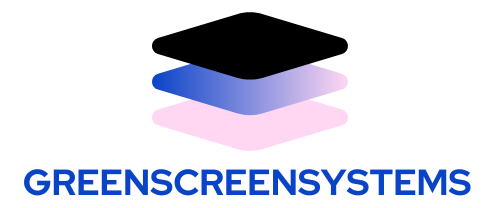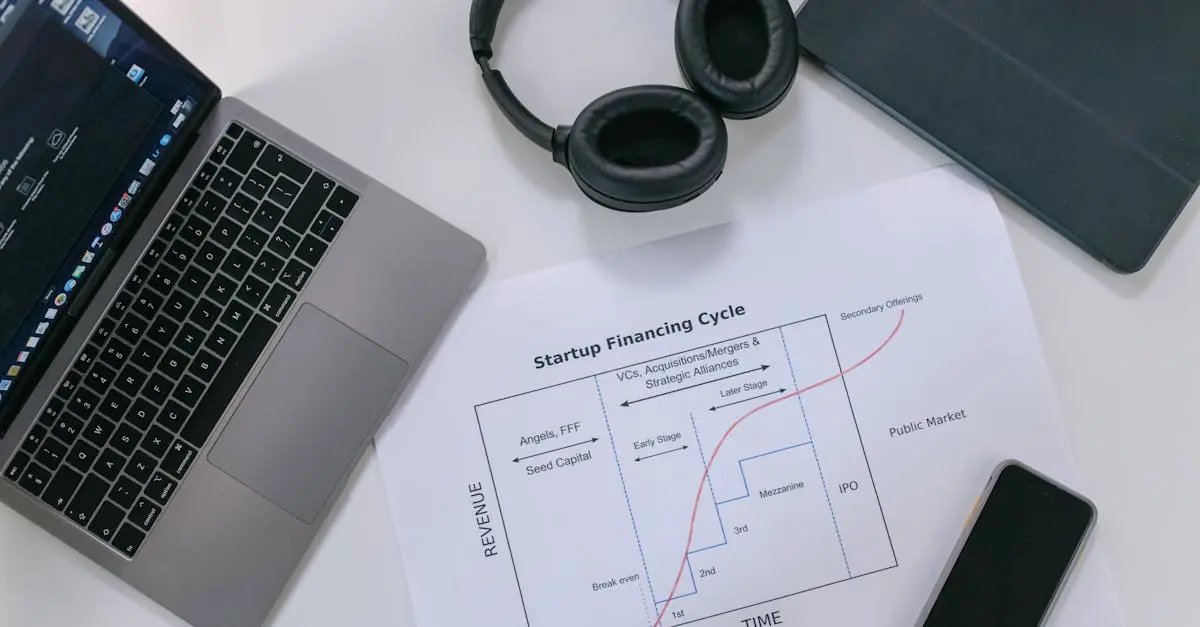Table of Contents
ToggleIn a world buzzing with gadgets and gizmos, consumer electronics startups are the quirky innovators shaking things up. These trailblazers aren’t just creating products; they’re crafting experiences that make life a little more exciting—and sometimes a little more confusing. Ever tried explaining your smart toaster to your grandma?
Overview of Consumer Electronics Startups
Consumer electronics startups embody innovation in the tech landscape. These companies focus on developing products that reshape daily experiences. They blend functionality with design to appeal to modern consumers.
Emerging trends reveal increasing demand for smart devices. Smart home technology, including security systems and energy management tools, garners significant attention. Many startups prioritize user-friendly interfaces, making complex technology accessible to a broader audience.
Investors show a keen interest in this sector. In 2022, global funding for consumer electronics startups reached over $20 billion. This financial support fuels research and development efforts, driving competitive advantage.
In addition to hardware, software solutions play a crucial role. Many startups integrate applications that enhance product usability. Connectivity between devices becomes seamless, improving overall consumer experience.
Various startups explore sustainability within their business models. Eco-friendly materials and energy-efficient designs resonate with environmentally conscious consumers. Such initiatives not only align with market trends but also help startups differentiate their offerings.
Collaborations with established tech giants often occur. Partnerships provide startups access to resources, distribution networks, and expertise. These relationships can accelerate growth and expand market reach.
Navigating the competitive landscape proves challenging. Rapid technological advancements require startups to stay agile. Consumer preferences shift frequently, demanding continuous innovation and adaptation.
Information-driven strategies emerge as essential for success. Data analytics enables startups to understand consumer behavior and preferences. Analyzing trends leads to informed product development and marketing strategies.
Trends in the Consumer Electronics Market
Consumer electronics startups are at the forefront of innovative trends that shape the market. Their commitment to enhancing user experience drives them to explore new technologies and address consumer needs.
Innovations in Technology
Cutting-edge advancements characterize the consumer electronics landscape. Startups frequently integrate artificial intelligence in devices, allowing for smarter automation and personalization. Enhanced connectivity through Internet of Things technologies revolutionizes how devices communicate. Battery life improvements serve as another critical area of focus, enabling prolonged usage for consumer satisfaction. These innovations not only streamline everyday tasks but also contribute to a seamless user experience.
Shifts in Consumer Preferences
Changing consumer preferences significantly influence product development. Consumers increasingly prioritize functionality and design in their electronic devices. Trends show a strong demand for eco-friendly products, encouraging startups to adopt sustainable practices. Home automation continues to grow in popularity, leading to higher interest in smart home gadgets. Social media has also become a vital platform for consumer feedback, prompting startups to adapt offerings based on user insights. Staying attuned to these shifts ensures relevance in a competitive market.
Notable Consumer Electronics Startups to Watch
Consumer electronics startups continuously innovate, driven by the need to enhance everyday life. Emerging players focus on developing smart devices that prioritize functionality and user experience.
Emerging Companies
Several emerging companies are making significant strides in the consumer electronics sector. Noteworthy startups concentrate on smart home technology, including security systems and energy management solutions. These companies often emphasize user-friendly interfaces, making complex functionalities accessible. For instance, startup A has created a smart thermostat that learns user habits and reduces energy consumption by 20%. Startup B specializes in wireless security cameras integrated with AI, offering real-time alerts to users. These innovations contribute to the growing demand for smart devices while attracting substantial investments, with funding for such startups surpassing $20 billion in 2022.
Established Players Adapting
Established players in the consumer electronics market recognize the need to adapt to emerging trends. Companies like Brand X now incorporate eco-friendly materials into their product lines, catering to environmentally conscious consumers. Adaptation includes integrating software solutions that improve usability and enable seamless connectivity. Brand Y has revamped its product lineup to feature home automation capabilities, responding to the popularity of smart home devices. This responsiveness to market shifts is vital for maintaining competitive advantages. Innovations in battery technology and connectivity continue to evolve, ensuring these established players remain relevant amidst rising startup competition.
Challenges Faced by Consumer Electronics Startups
Consumer electronics startups encounter various challenges that hinder their growth and sustainability in a dynamic market. These hurdles often include securing adequate funding and navigating intense competition.
Funding and Investment Hurdles
Securing funding poses a significant obstacle for many consumer electronics startups. Investment opportunities can fluctuate, creating uncertainty in financing efforts. In 2022, global funding for consumer electronics startups surpassed $20 billion, but accessing this capital often requires a solid business model and compelling pitch. Investors typically seek companies with innovative solutions that can demonstrate potential for scalability. Startups lacking established track records face additional challenges in attracting investors. A clear understanding of market positioning and projected returns also influences fundraising success. Thus, maintaining transparency and effective communication during the fundraising process plays a critical role in overcoming these financial barriers.
Competition and Market Saturation
Navigating competition and market saturation presents continual challenges for consumer electronics startups. As new technologies emerge, consumer preferences shift rapidly, adding pressure to innovate consistently. Established tech giants dominate the landscape and possess substantial resources that allow them to adapt swiftly. Startups often struggle to differentiate their offerings amidst this crowded marketplace. Emphasizing unique features and high-quality design can enhance competitive positioning. Additionally, consumer expectations around functionality and sustainability are evolving, requiring startups to remain nimble in product development. By closely monitoring market trends and consumer feedback, brands can refine their strategies to keep pace with industry demands.
Consumer electronics startups are redefining the tech landscape with their innovative approaches and commitment to enhancing user experiences. As they navigate a competitive market filled with challenges, these startups are poised to lead the charge in smart home technology and eco-friendly solutions.
By focusing on user-friendly designs and integrating advanced technologies, they’re making complex devices accessible to a broader audience. The ongoing investment in this sector reflects a strong belief in their potential to shape the future of consumer electronics.
As trends evolve and consumer preferences shift, the adaptability and creativity of these startups will be crucial in maintaining their relevance and driving the industry forward.




